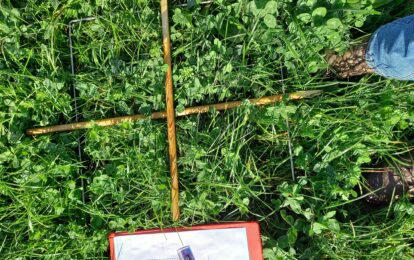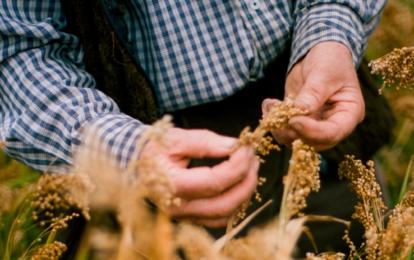ORFC 2026 8 – 9 Jan
ORFC 2026 8 – 9 Jan
Small Island Developing States (SIDS) comprise 58 countries and territories. The majority are situated in the Caribbean and Pacific and are particularly vulnerable to climate change. Over sixty percent of food consumed is imported, much of which is of low nutritional quality, contributing to high burdens of nutrition-related disease. Increasing the production and consumption of local nutritious foods is a goal of SIDS governments. This panel discussion will examine the current situation in SIDS and…
The world is at a crossroad of multiple crises. Returning to look back to Indigenous wisdoms is vital as we look to the future. This session shares the journey of developing an Indigenous verification and validation system for Kai Atua (Pure Food) or Māori organics. It is a framework developed over a decade ago by the Māori Organics group - Te Waka Kai Ora and is fast becoming a pathway for Māori communities to reclaim…
This session will provide an overview of the climate crisis in these countries and the need for global and national policies. Speakers will share how the crisis in Pakistan devastated the country and the efforts that farmers have made to rehabilitate their communities with agroecology. Speakers from Bangladesh will share how they have used the floods to create a sustainable community development initiative.
This session will begin with a 35 minute screening of the film “Planet Local: A Quiet Revolution” which features grassroots activists from every continent alongside internationally known figures like Noam Chomsky, Jane Goodall, Pat McCabe and Gabor Mate. The film challenges the mainstream media narrative that “bigger is better” that has dominated economic thinking for centuries, and showcases initiatives that are already underway to protect and restore human-scale local economies, communities and the natural world,…
The Andhra Pradesh Community Managed Natural Farming Programme is a highly successful government-led initiative involving millions of farmers and eight million hectares of land in India. It revolves around nine key agroecological principles, including the use of indigenous seed, cover crops and keeping soil disturbance to a minimum. Probably most importantly it offers a viable alternative to using chemical fertilisers, pesticides and herbicides.
In 2020, members of the Alliance for Food Sovereignty in Africa (AFSA)…
2022 saw a meteoric rise in the price of all major fertilisers, triggering a ripple effect of extra costs across the farming industry. Long before the recent crisis, farmers have been investigating nature-friendly practices which give them independence from global markets. Through Innovative Farmers, groups of farmers are teaming up with researchers to test new ideas on their farms. From developing low tech innovation into herbal leys, living mulches, and intercropping to researching the latest…

Experimentation has been a core element of many farmers’ and growers’ practice since the dawn of agriculture, and continues to influence day-to-day decision making at the farm level. However, in recent decades, top-down approaches to innovation in agriculture have dominated the formal research agenda, resulting in massive degradation of land, environment and local culture. There is an urgent need to recognise the value of farmers’ knowledge and research and the essential role it can play…

Aligning investment and finance decisions is critical to kickstart a transition to agroecology. Farmers can be a force for change, but what are investors looking for and how can policy and market frameworks support bold moves? What does supportive finance look like for farmers trying to access new investment or new environmental services markets as part of viable farm businesses? And what role can the UK’s financial institutions play in this?
How can we step off the dairy treadmill? Join farmers from the Food Ethics Council’s Dairy Project who are seeking to overcome lock-ins relating to dairy.